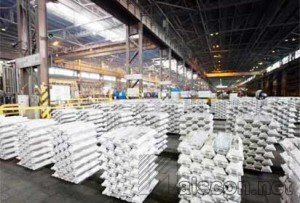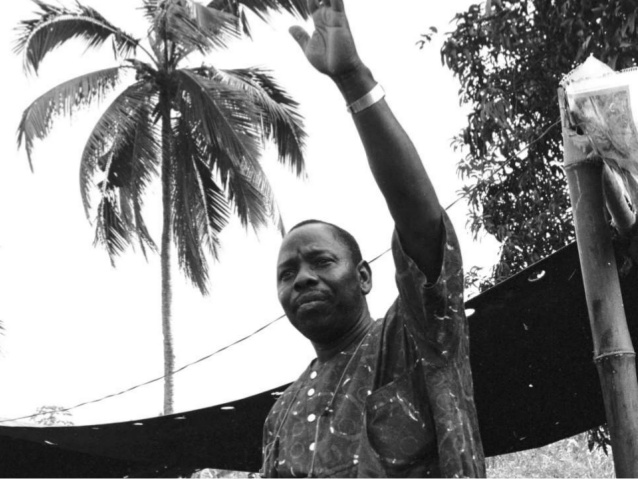
Oscarline Onwuemenyi
10 December 2015, Sweetcrude, Abuja – Following the latest call by the World Bank for the Federal government to do away with the subsidy system on petroleum products in the face of dwindling oil prices, the organised labour in the country has kicked against the idea.
The World Bank, on Tuesday, told President Muhammadu Buhari that the time to remove petroleum subsidy is now, especially in the face of the current fuel crisis across the country showing no sign of abating.
But the Nigerian Labour Congress (NLC), the umbrella body for workers, along with the Trade Union Congress (TUC) would hear none of it.
The NLC President, Comrade Ayuba Wabba, described subsidy as “a constitutional right” of Nigerians living in a depressed economy, and vowed to resist any attempt to remove it.
Wabba in a statement said it was unacceptable that Nigerians are forced to go through perennial fuel shortage and the associated hardships especially towards the end of every year.
“It is unacceptable to us that Nigerians are being forced to cough out between N150 – N300 per litre for fuel instead of the official price of N87 per litre. This to us shows a clear determination by some unpatriotic operators in the petroleum industry to circumvent government regulation through blackmail and other unorthodox methods,” he stated.
The Buhari administration has given hints of its intention to remove fuel subsidy, and in what appears to be a prelude to the eventual removal of fuel subsidy, the President made no provision for kerosene subsidy in the Medium Term Expenditure Framework, MTEF, and Fiscal Strategy Paper, FSP, which he presented to the National Assembly, on Tuesday.
At Monday’s Federal Executive Council meeting, the Minister of Budget and National Planning, Udoma Udoma, while unveiling the Medium Term Expenditure Framework and the government’s N6 trillion budget proposal for 2016, said the government was seriously weighing the options between removing or retaining fuel subsidy next year.
However, speaking at the launch of the new edition of Nigeria Economic Report, the World Bank’s Lead Economist, John Litwack, said the best time to remove fuel subsidy is now when global crude oil price is at its lowest level, noting that the Bank foresaw continuous decline in global crude oil price.
Despite last Friday’s attempt by the Organisation of Petroleum Exporting Countries, OPEC, during its 168th conference to maintain its production quota so as to stabilize the crude oil market, the price of the commodity slumped further to $37.89 per barrel on Monday from $38.09 on Friday.
Mr. Litwack said now is the best time for the government to scrap the subsidy, as doing so would not push retail pump price beyond an average of N100 per litre, or generate the kind of pressure that would negatively impact on the people beyond what they are currently facing.
According to Litwack, “The fuel subsidy appears to have vast modest benefits for the majority of citizens, but the costs are quite high. There is a strong tendency for the cost of fuel subsidy to increase over time as increasing domestic demand for petrol outpaces growth in oil output or revenues.
“The $35 billion cost of fuel subsidy during 2010 – 2014 was one of the reasons Nigeria was unable to accumulate a fiscal reserve in the Excess Crude Account that could have protected the country from the recent oil price shock.”
He explained that fuel subsidy obligations were expected to reach 18 per cent of all government oil revenues in 2015, pointing out that if the current regulated price regime of N87 per litre was maintained, subsidy was projected to increase to more than 30 per cent by 2018.
Wabba’s NLC has argued that subvention or subsidy is a major function of the government which avails it the ability to be able to carry out its core functions of provision of welfare facilities to the citizens.
He further maintained that subsidy in any economic system cannot be ignored but in Nigeria’s context subsidy has been used to do a lot of havoc to the economy. “Therefore, the quagmire will continue even if you allow the system to be controlled by marketers,” he insists.
He analyzed that placing subsidy side by side with deregulation which means allowing market forces to determine the price emphasizes the need for the government to continue to subject itself hook, line and sinker to economic policies of the multinational agencies who will always advance their selfish interests. “They will always give reason Nigeria should continue to import; they will always give reasons we need to deregulate so that they can have more money,” he argued.
He added, ”Oil is very strategic, even to our national security. Marketers will one day come together and say that they will sell petrol at N200 per litre, and what will you do. Like the case of kerosene and diesel, DPK has been full deregulated but you go to some places they sell at N200 per liter. Why should this be so? Why should citizens continue to carry the burden? What is the essence of government? It is welfare and well-being of the people and therefore why should it be so in our system?”
It will be recalled that the annual cost of subsidy rose to a peak of N2.2trn in 2011 before the last attempt to remove the subsidies. But there are indications that subsidy may drop from the N2.4 billion it recorded in last June to N1.07 billion recorded early this month following a disclosure by the Petroleum Products Pricing Regulatory Agency (PPPRA) in its pricing template which showed the expected open market price of the petrol at N109.42.
The official PPPRA template shows that the cost of imported petrol is at N115.54 per litre as at early September. this, according to the template constituted the product plus freight at N88.70, other charges at landing of N11.35 and distributors’ margins of N15.49. with the retail price still set at N87/l.
All these implied a subsidy per litre of N28.54 and a fiscal cost of N312bn per year. Only time will tell on which way the current administration will thread on this lingering fuel subsidy controversy as regards the various probable solutions that have been laid on the table by experts and stakeholders.



